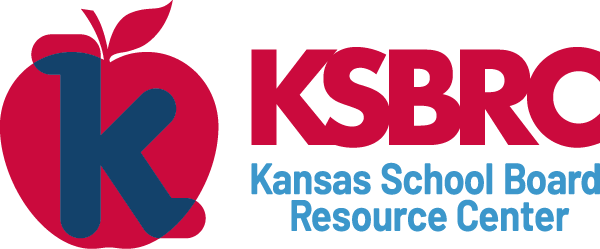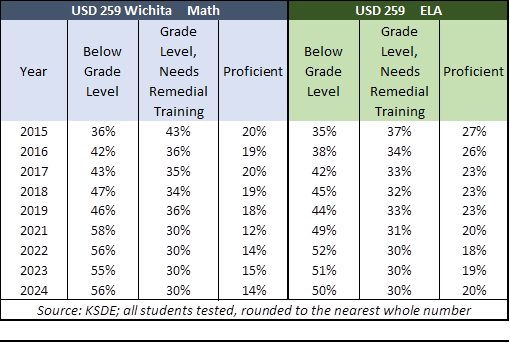With a backdrop of the historic Monroe Elementary School in Topeka, Ground Zero of the 1954 U.S. Supreme Court decision in Brown v Board of Education that outlawed school segregation, the No More Lines Coalition and yes.every kid. Foundation” demanded an end to “address discrimination”, truly open enrollment for all K-12 students in the U.S.
Speakers and panelists from across the nation supported Open Enrollment in its purest form; with district boundaries determining enrollment erased, any student could attend any school their families wanted, without regard to their home address. Kansas is one of 43 states allowing some form of interdistrict open enrollment, which is a transfer outside the student’s home district.. The bipartisan 2022 law took effect this school year. A Kansas student can transfer schools as long as the receiving school has capacity. The Sunflower State offers tax credits for those contributing to scholarships for low-income students, and allows home school students to participate in public school activities, including athletics.

The No More Lines Mission Statement is two-fold:
Regardless of where they live, residents of any given state can access public goods like parks, libraries, or pools whenever they’d like. However, with public schools, it isn’t the same way. Every day, children across the country are denied access to a public school that works for them simply because they do not live in the right neighborhoods. No More Lines allows kids to access any public school of their choosing, no matter where they live.

Today in most states, schools are funded before students. That means someone besides a family is making decisions about money, what is best for the student, and where that student is best served. Students and families should be the primary decision-makers, not bureaucratic systems. That’s why every family should get to decide how their student’s education funding is spent. “Fund Every Kid” allows families to control their children’s educational funding and spend it to design an education system that suits their unique needs.
Kelley Williams-Bolar, an Akron, Ohio, mom, told the assembled crowd a riveting story about the legal quagmire she found herself in when she tried to improve the educational opportunities for her daughters:
“In 2011 I was indicted on charges that are known as “district-jumping.” I honestly did not know it had a formal name. I was a divorced mom of two girls. My father had suggested enrolling my daughter into his school district. Since he was on disability and now staying home. He figured he could help me out by helping the girls come and go from the bus stop. I lived in Akron and my parents lived in Copley. Actually, we both lived off the same major road, which is called Copley Road.
“The first year they attended the school where my father lived, the district hired a liaison to come to homes to make sure the students actually resided in the home. Many times, they would ask my father if they could look in the girls’ bedrooms, bathroom, and closets to make sure that my girls had clothes and toothbrushes there.
“In the second school year the district hired a private investigator to follow me around for 14 days. I later received a postcard informing me they had clear evidence that I did not live with my parents.

My father had received a Grandparent Power of Attorney, which allows grandparents to enroll students, take them to doctors’ appointments, etc. The district fought against the GPA, and by June, a judge sent me a letter asking me to remove the girls, which I did.
“18 months later I received a postcard in the mail and it said Kelley Williams-Bolar vs Ohio. It was an indictment. I honestly was not for certain what I had done. Not to mention it had been 18 months since my girls had attended the school. My father also received a postcard indictment. I went to court and we had a trial. I was found guilty and charged with felonies: grand theft , tampering with documents. It was very hard on the family.
My dad was not charged, and actually, they dropped his charges, but instead, while we were in court, they changed his felonies to stealing $100,000 of health insurance. He served one year in prison and died there alone.”
Williams-Bolar explained to the audience it took intervention on her behalf by Ohio Governor John Kasich to get her felonies reduced to misdemeanors. But the ordeal cost her her father.
Halli Faulkner, Senior Legislative Drafter for the No More Lines organization and a former elementary school teacher, was among the speakers and breakout session leaders. We asked her how resistance to universal School Choice and truly Open Enrollment in the face of a widening gap in achievement between white and black and brown students compares to the resistance to school desegregation in pre- and post-Brown v Board America:

“The promise of Brown v. Board was to ensure that all children, regardless of race, have equal access to quality education. Systemic barriers designed to prevent families from exercising their preferred educational choice undermine that promise, effectively reinforcing an unequal system. In a modern context, it is not as blatant, but the results are just as damaging.
“Public education must embrace universal open enrollment, allowing every family to choose the school that best suits their child’s needs, irrespective of residence, while preventing schools from blocking students from leaving or transferring. This approach will expand educational opportunities and create better outcomes for students and families alike.”
50Can, another advocacy group for School Choice, publishes an extensive yearly survey on the issue. Its representative announced its results were coming in October.






